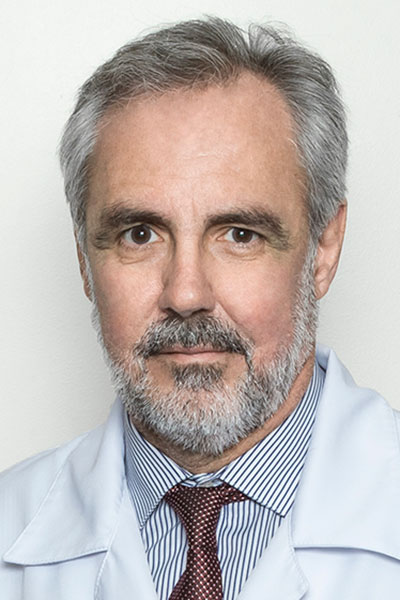Treatment Post-CDK 4/6 Inhibitors
Tuesday, December 5 • 3:25 p.m. – 5:15 p.m. • Hemisfair Ballroom 3
Presentation: Single Agent Endocrine Therapy Post-CDK4/6 inhibitors in metastatic HR+ BC

Carlos H. Barrios, MD
Latin American Cooperative Oncology Group,
Porto Alegre, Brazil
What is your presentation about?
The presentation addresses an important and evolving topic with a significant impact for clinical practice. With the adoption of cyclin inhibitors as first line therapy for HR+ MBC patients, what to offer these patients is a common and pertinent question for clinicians all over the world. Many options are being explored in this situation and one potential strategy would be to continue endocrine therapy with single agents. New SERMs, SERDs, PROTACs, SERCAs and CERANs are being developed for patients that remain endocrine sensitive. Recently presented data and new perspectives in this field will be discussed.
What makes this topic important in 2023?
As has happened in other areas of oncology, we are recognizing that not all HR+ patients are the same. In this particular group of patients, for many years, we have offered the same few endocrine therapy approaches that even helpful in many cases, are associated with limited benefits. With the evolving understanding of the complexities of endocrine signaling and the interactions with other cellular pathways, identification of different patient populations becomes critically important. While single agent endocrine approaches can be effective for some patients, combinations will probably become the rule. Two major unmet needs remain critically important to advance the field: biomarker development and a better understanding of resistance mechanisms.
How did you get involved in this particular area of breast cancer research, care, or advocacy?
Clinical practice and clinical research activities have directed my interests and involvement with patients with BC. The fantastic heterogeneity that makes every patient encounter a new challenge keeps me engaged trying to approach new questions and demands in need for answers. There are so many ways to help and so many unanswered issues to address that the field of BC stands as a continuous source of motivation. Taking care of BC patients will never be a tedious or monotonous activity.

